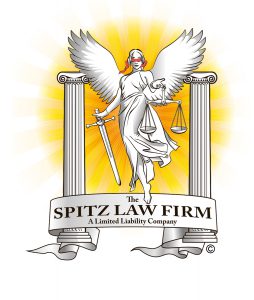Best Employment Attorneys’ Answer: Do I have to pay taxes on my race discrimination lawsuit? Should I report my gender and disability discrimination settlement to the IRS? Can I avoid paying taxes on the jury’s verdict on my sexual harassment claims?

“Nothing is certain except death and taxes.” We have all heard this before and most of us have probably uttered this phrase once or twice. What most of don’t know is that this unfortunate truism has a long history in our country. It origins are found in a 1789 letter, in which Benjamin Franklin, who you may have heard of, penned that “Our new Constitution is now established, and has an appearance that promises permanency; but in this world nothing can be said to be certain, except death and taxes.” Now, as a bit of a history aside, if I asked most people when the US Constitution was signed, most would say 1776, but that would be wrong. The Declaration of Independence was signed in 1776 and then followed 11 years later by the United States Constitution, which was signed on September 17, 1787. With this in mind, the certainty of taxes is deeply ingrained in the history of our county.
So, what does this have to do with employment discrimination and wrongful termination litigation claims? Well, at some point or another every employee client asks the same question – so how much do I get? We are not tax attorneys, accountants, or any other type of tax professional. There is a lot of factors that go into how much of every settlement or jury verdict that a wronged employee will have to pay the government, which is why we always direct our clients to consult with a tax professional regarding their personal situation. However, there is one thing that we can say, the government will get theirs. They always do. It is a certainty.
Let’s start with the basics: Section 61 of the tax code starts with the basic premise that gross income “means all income from whatever source derived.” Think about that – “whatever source”. That means if money is paid by your job, falls out of a plane, or from winning at the Wheel of Fortune, the United States government wants its piece … unless you, as a tax payer can prove that your income falls into an exception.
Before we get into the exceptions, let’s talk about the damages that may be available to you as part of an employment claim. Some claims, for exampleWorkers’ Compensation retaliation claims, will only allow you to get back wages and attorneys’ fees paid. On the other hand, under Title VII of the Civil Rights Act of 1964 and Ohio’s , emotional distress and punitive damages can also be recovered – but not necessarily attorneys’ fees. Most people understand that back wages, or even front pay if recovered, is a replacement for the wages that you should have been paid but for your employer wrongfully firing you; and that since those original wages are taxed as income, so would the replacement wages from a settlement or verdict. The part of the settlement attributed to lost or back wages will typically be paid on a W-2 basis with the employer deducting the taxes at the same rate and for the same basis as when you were working there. The remainder of the settlement, including the emotional distress and attorneys’ fees (which often are then listed as a deduction), are paid on a 1099 basis with no taxes taken out at the time of the settlement. However, because a 1099 will be issued and reported to the government, Uncle Sam usually comes calling for its cut of that money come tax time.

Yet, many people have attempted to argue that this portion of the settlement is not taxable. This usually happens because someone gets in their ear and says something like, “hey, when I got this settlement from my car accident case, I didn’t have to pay any taxes!” So, clients often call and ask why they have to pay taxes when their sister’s friend’s roommate, Judy, did not have to pay taxes when she was hit by a truck in a cross walk.
The answer to this question is provided by looking at Section 104 of the tax code, which is the exclusion usually applicable to personal injury, auto accident and medical malpractice cases. This section gives an exclusion from gross income for “the amount of any damages received (whether by suit or agreement and whether as lump sums or as periodic payments) on account of personal physical injuries or physical sickness.” Unfortunately, Section 104(a) provides that emotional distress shall not be treated as a physical injury or physical sickness for the purpose of the exclusion. Giveth with one hand, take away with the other.
Well, some people think that they can play the system by arguing that they had physical symptoms from their emotional distress. Although anyone who has had anxiety or severe depression knows the physical tolls and manifestations that is taking on your body, this is a losing argument right from the beginning. First, the legislative history for Section 104 establishes that any physical symptoms that arise out of or caused by emotional distress, such as chest pain, stomach or intestinal issues, and migraines (to name a few) will not be treated for tax purposes as physical injuries or sickness. Obviously, everyone who dealt with these symptoms are collectively screaming bull shit at the top of their lungs. But, that is the way it is.
Nonetheless, many brave souls have ventured to challenge this ruling. Most were probably just hoping that the IRS would not audit them or catch it, but a few, once caught, still fought the issue into tax court. Unfortunately, the results are predictable, but they do provide a good example of how entrenched the requirement is to pay taxes on employment claims.
Let’s first look at a February 16, 2016 opinion from the United States Tax Court where former United States Postal Service employee Debra Barbato tried to exempt her disability discrimination claim recovery from being taxed.
As a result of an automobile accident while on the job, Barbato sustained back and neck injuries. Because of her ongoing physical limitations, the U.S Postal Service initially gave Barbato the position of “modified letter carrier” that did not actually require her carry mail. Instead, Barbato worked at a postal station answering telephones, helping at the window, issuing post office box keys, dealing with customer complaints, and performing other administrative duties. Anyone who has ready our employment discrimination lawyers blogs knows that this is not the end of the story. (Can My Boss Fire Me Because of My Medical Condition?; What Can I Do If My Boss Discriminates Against Me Because Of My Disability?). A new manager comes in, takes away the accommodation and reassigns Barbato to carrying mail again, which caused her to suffer pain – actual physical pain. Additionally, the new manager, as well as other supervisors, made work life increasingly difficult for Barbato by scrutinizing her work more closely than that of other similarly situated employees, retaliating against her because she requested medical accommodations, and creating an overall hostile work environment. Barbato and her employment attorney filed a complaint with the Equal Employment Opportunity Commission> (“EEOC”). While the EEOC administrative judge awarded Barbato $70,000 for emotional distress arising out of the discrimination, including for depression, anxiety, sleep problems, and post-traumatic stress disorder, he specifically held that the aggravation of her car accident injuries were not related to the discriminatory conduct and did not award any damages for such aggravation, which seems rather stupid. (Part of the reason that we always try and avoid letting the EEOC take over claims – Top Employment Law Attorney: Do Not File With The EEOC Without Doing This First; File With The EEOC Or Get A Lawyer? Call The Right Attorney; Should I Get A Lawyer To Help Me File An EEOC Charge?; and Should I File With The EEOC On My Own? Call The Right Attorney).

Barbato did not report the income on her tax return, believing that it fell under the Section 104 exclusion. When later audited, Barbato argued that while award from a suit seeking emotional distress damages, the genesis of the claims arose out of her physical injuries and disabilities. Obviously, the government disagreed. So, Barbato took the case up to tax court. Now, before we get to the decision, this is a really important part to understand: “The [tax] Commissioner’s determinations in the notice of deficiency are generally presumed correct, and taxpayers bear the burden of proving otherwise.” Think about that. When you go to tax court, the playing field is not level. It starts with the presumption that the government is right and that the tax payer is wrong! Not a good starting point even if you have a decent argument. Barbato did not, and that tax court held: “The EEOC decision is clear that the damages USPS paid to Ms. Barbato were for emotional distress attributable to discrimination, and consequently, the Barbatos must include the damage award in their gross income.”
Let’s take a look at another example of our hungry waiter, Joshua SmithAmericans with Disabilities Act (“ADA”).
Now, the refusal to allow Smith to eat caused him to lose weight and have a physical reaction to his medication. So, one may think that he had a good argument. Yeah, not really. The problem started with how his complaint was drafted. The complaint provided: “As a direct and proximate result of defendant’s actions toward Plaintiff, as described herein, Plaintiff has suffered, and will continue to suffer, severe emotional distress, anxiety, depression and other consequential damages.” It did not mention any physical injury or physical sickness. The second problem was how the settlement agreement was drafted.
It provided:
Plaintiff has requested, and the parties have agreed, that Five Thousand Dollars of the total payment be allocated to lost wages. MBFG shall report this portion of the payment to the Internal Revenue Service through an IRS Form W-2 and such payment shall be subject to applicable employment tax withholding. Plaintiff has requested, and the parties have agreed, that the remainder of the sum be allocated to pain and suffering, emotional distress and the expense of suit. This portion shall be reported to the Internal Revenue Service through an IRS Form 1099. [Emphasis added.]
The settlement agreement does not mention any physical injury or physical sickness. So, smartly the parties designated some portion of the settlement to wages, which is obviously taxable. Not attributing any amount to wages in an employment claim raises a serious red flag. Now, I’m not saying that this would have made a difference in this uphill battle, but had the complaint specifically identified what the physical injuries were and also asserted a personal injury claim for those symptoms and then resolved those claims expressly as part of the settlement, Smith might have had a chance to successfully argue that part of the $35,000 went toward non-taxable physical injury or physical sickness. Clearly, there is still going to be pain and suffering directly flowing from the disability discrimination, but maybe some of that could be saved as being tax-free.
The problem is that many lawyers – especially those that do not focus in employment litigation – do not think of the tax consequences of what they do because they view it as not being part of their job. They think that their only job is to get a recovery and get paid. In reality, the attorneys’ job is to take care of the client, which includes setting the matter up in the best tax situation possible because once it is handed off to a tax professional after settlement, there is very little that can be done to change the situation. Now, just because this type of drafting did not happen in your settlement agreement does not mean that your attorney is at fault or did not try to follow best practices. Remember, it takes two to tango. Very often the defendant employer and its lawyers will not agree to such categorization – especially if it is questionable because they do not want to be dragged into a tax fight.
And, even when drafted in the best way possible, the employee tax payer still loses.
Take the case of Julie Blackwood, who worked for Siemens as a trainer of hospital personnel in the use of a Siemens-developed computer program for the collection of patient information. While at the hospital with her son, Blackwood observed and reported what she believed was unlawful conduct by a nurse at a hospital that was a Siemens’ client. Her employer wrongfully fired her and Blackwood filed a whistleblower claim. Blackwood’s preexisting “depression relapsed, causing her to suffer symptoms such as insomnia, sleeping too much, migraines, nausea, vomiting, weight gain, acne, and pain in her back, shoulder and neck.” All would agree that these are physical conditions. The parties entered a confidential settlement agreement and general release (settlement agreement) in which Siemens agreed to pay Blackwood $100,000 for “alleged damages for illness and medical expenses allegedly exacerbated by, and allegedly otherwise attributable to, Blackwood’s alleged wrongful termination.” Per the agreement, the employer issued a Form 1099-MISC, but based on the advice of her attorneys, Blackwood excluded the $100,000 from her tax return as a nontaxable payment based on to Section 104. Skip to tax court, which held:
Section 61(a) generally provides:
“gross income means all income from whatever source derived” unless excluded by a specific provision of the Code. This section is construed broadly, whereas exclusions from gross income are construed narrowly. Commissioner v. Schleier, 515 U.S. 323, 327-328 (1995); Commissioner v. Glenshaw Glass Co., 348 U.S. 426, 430 (1955). Section 104(a)(2) provides an exclusion from gross income for “the amount of any damages (other than punitive damages) received (whether by suit or agreement and whether as lump sums or as periodic payments) on account of personal physical injuries or physical sickness”.4 “The term ‘damages received (whether by suit or agreement)’ means an amount received * * * through prosecution of a legal suit or action based upon tort or tort type rights, or through a settlement agreement entered into in lieu of such prosecution.” Sec. 1.104-1(c), Income Tax Regs. In order for damages to be excludable from gross income under section 104(a)(2), the taxpayer must demonstrate that: (1) the underlying cause of action is based upon tort or tort type rights and (2) the damages were received on account of personal injuries that are physical or a sickness that is physical. See sec. 104(a)(2); Commissioner v. Schleier, 515 U.S. at 337. The flush language of section 104(a) provides that emotional distress shall not be treated as a physical injury or physical sickness. …
The legislative history of section 104 specifically contemplates that:
Emotional distress may manifest itself in physical symptoms by explicitly listing physical symptoms as symptoms that may result from emotional distress. … Congress’ listing of physical symptoms of emotional distress is evidence of Congress’ intent to establish that not every physical symptom will qualify as a physical injury or physical sickness under section 104(a)(2). Therefore, the fact that a taxpayer suffers physical symptoms from emotional distress does not automatically qualify the taxpayer for an exclusion from gross income under section 104(a)(2). See Wells v. Commissioner, T.C. Memo. 2010-5, 2010 Tax Ct. Memo LEXIS 4, at *9 (“[A]ny amounts paid in such circumstances for physical symptoms of emotional distress are similarly includable in income.”)

As such, any payment for physical symptoms that derive in any way from emotional conditions, such as depression or anxiety, will likely be taxable as income.
Because it is always good to end on a positive note, the >Blackwood case does provide: “We further note petitioners would have been able to exclude from income a portion of the settlement payment equal to the amount spent on petitioner’s medical care.” This includes treatment and medical care for emotional distress damages. However, be mindful that these medical payment damages must be documented and substantiated. Unfortunately, Blackwood did not: “However, there is no substantiation in the record of any of petitioner’s actual expenditures for medical care. Therefore, we find that petitioners are not entitled to any exclusion from gross income under the flush language of section 104(a).” And, so much for ending on a positive note. At least you know more about tax issues relating to your potential employment claims.
If you are searching “I need a lawyer because I have been wrongfully fired or terminated;” or “I have been discriminated against or harassed based on my …” race, national origin, gender, age religion or disability; or even think that you might need an employment lawyer, then it would be best to call the right attorney to schedule a free and confidentialconsultation at 866-797-6040. Spitz, The Employee’s Law Firm and its attorneys are experienced and dedicated to protecting employees’ rights and solving employment disputes.

Disclaimer:
This employment law website is an advertisement. The materials available at the top of this page and at this employment law website are for informational purposes only and not for the purpose of providing legal advice. If you are still asking, “How do I …”, “What should I do …,” “My boss discriminated against me because …” or “I was fired for …”, it would be best for to contact an Ohio attorney to obtain advice with respect to any particular employment law issue or problem. Use and access to this employment law website or any of the links contained within the site do not create an attorney-client relationship. The legal opinions expressed at or through this site are the opinions of the individual lawyer and may not reflect the opinions of Spitz, The Employee’s Law Firm, Brian Spitz, or any individual attorney.
